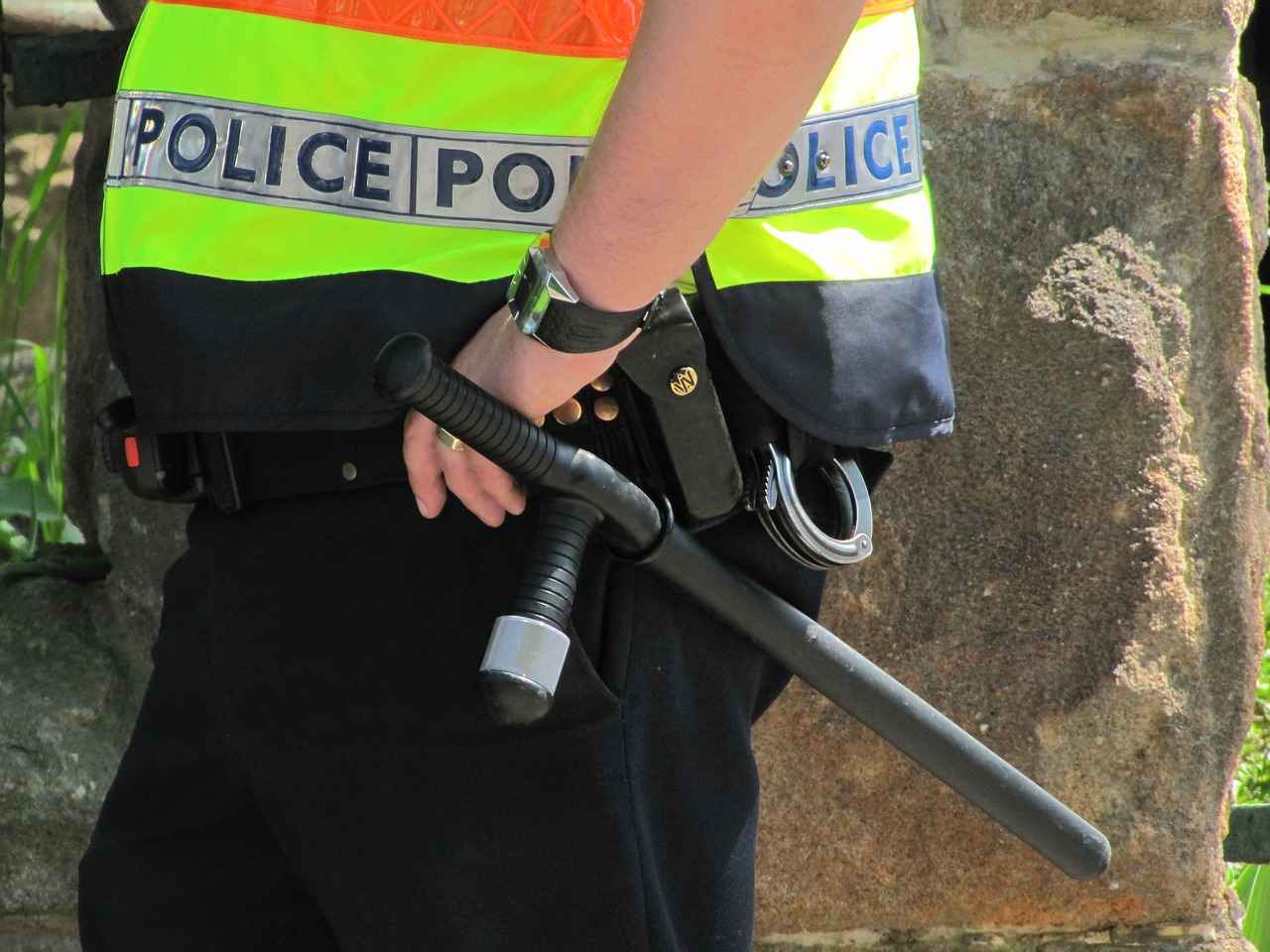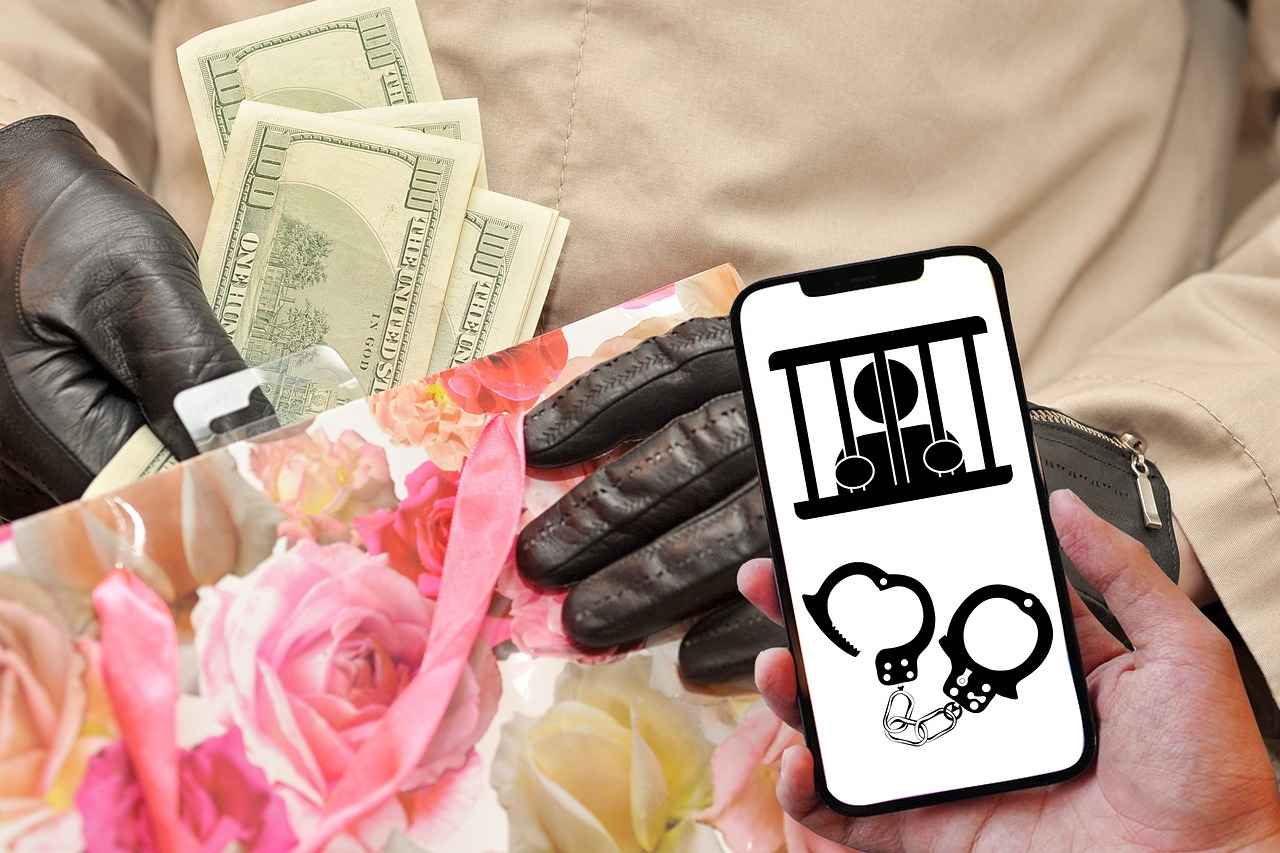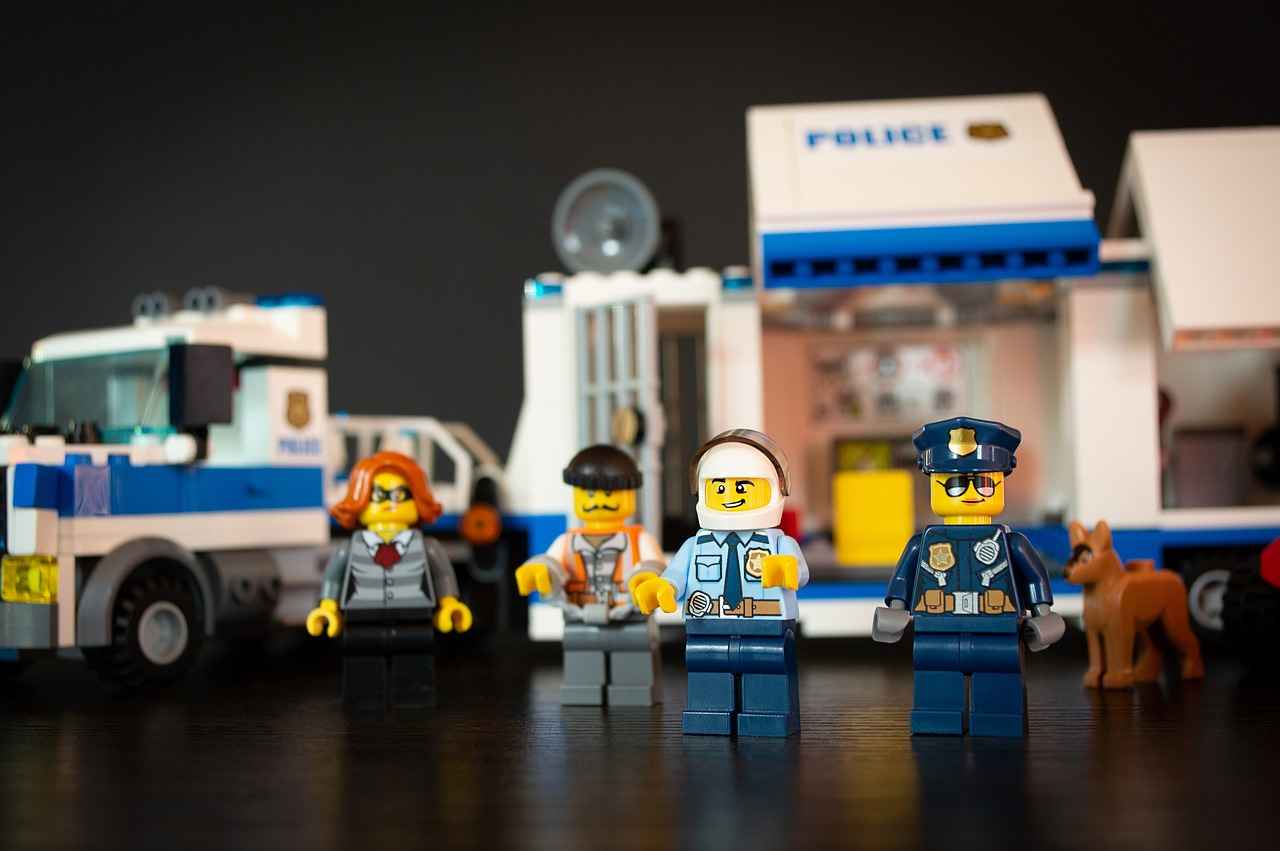This article delves into the intricate legal framework surrounding probation violations, including timelines, procedures, and the rights of individuals on probation. Understanding these guidelines is crucial for anyone navigating the probation system.
A probation violation occurs when an individual fails to comply with the terms set by the court. This can include missing appointments, failing drug tests, or committing new offenses. Recognizing what constitutes a violation is essential for those on probation, as it directly impacts their future.
Probation officers typically have a specific timeframe within which they must report violations. Understanding these timelines can be beneficial for individuals on probation.
Most jurisdictions require probation officers to report violations promptly, often within 48 to 72 hours. This ensures that the system remains efficient and that the individual’s rights are protected. Timely reporting is crucial for maintaining the integrity of the probation process.
Certain factors, such as the severity of the violation or the officer’s workload, can impact how quickly a violation is reported. For instance, if a violation involves a serious crime, it may be reported more swiftly than a minor infraction. Understanding these factors can help individuals on probation anticipate possible outcomes.
Once a violation is reported, specific legal processes are triggered. This section explains the steps that follow a reported violation and what individuals can expect.
After a violation is reported, the court may conduct an initial review to determine the validity of the claims. This process is crucial for ensuring fairness in the legal proceedings. Individuals should be prepared for this review and understand that it is a critical step in the process.
Consequences for a probation violation can vary significantly, ranging from warnings to incarceration. Understanding these potential outcomes can help individuals prepare for the next steps. It is important to note that not all violations lead to severe penalties; some may result in additional probation conditions.
Individuals facing a violation hearing have specific rights that protect them during the legal process. This section outlines these rights and their importance.
Individuals have the right to legal counsel during a violation hearing. Having a lawyer can significantly impact the outcome, ensuring that the individual’s rights are upheld. A qualified attorney can provide invaluable support and guidance throughout the process.
During a hearing, individuals can present evidence and witnesses to support their case. Understanding this right is crucial for building a strong defense against the violation. Properly preparing for this can make a significant difference in the hearing’s outcome.
Preventing probation violations is essential for maintaining compliance and avoiding legal repercussions. This section provides practical tips for staying on track during probation.
Thoroughly understanding the terms of probation is vital. Individuals should take the time to read and clarify any confusing aspects of their probation agreement. This proactive approach can help prevent unintentional violations.
Maintaining open communication with a probation officer can help address any issues that may arise. This proactive approach can prevent misunderstandings and potential violations, ensuring a smoother probation experience.
Being accused of a probation violation can be stressful and daunting. This section outlines the steps individuals should take if they find themselves in this situation.
Remaining calm and collecting all relevant information is crucial after an accusation. This can help in understanding the specifics of the violation and preparing a defense. Detailed notes and documentation can be invaluable in this process.
Consulting with a lawyer as soon as possible can provide guidance on the best course of action. Legal support is essential for navigating the complexities of probation violations. An attorney can help individuals understand their rights and options, ensuring they are fully informed throughout the process.

What is a Probation Violation?
A probation violation is a serious matter that occurs when an individual fails to adhere to the terms set forth by the court during their probation period. These terms can vary widely depending on the case but often include requirements such as regular check-ins with a probation officer, maintaining employment, attending counseling sessions, or abstaining from illegal activities. Understanding what constitutes a violation is essential for anyone on probation, as it can significantly impact their future.
Probation is intended to be a rehabilitative measure, allowing individuals to reintegrate into society while still under the supervision of the legal system. However, failing to comply with the conditions of probation can lead to severe consequences. Below, we explore the different aspects of probation violations.
- Failure to Report: Missing scheduled meetings with a probation officer can be considered a violation.
- New Criminal Offenses: Committing a new crime while on probation is one of the most serious violations.
- Substance Abuse: Testing positive for drugs or alcohol can lead to a violation.
- Failure to Complete Required Programs: Not attending mandated treatment or counseling programs is also a violation.
When a violation is reported, it triggers a series of legal procedures. The individual may face a hearing where the court will determine whether a violation occurred and what the consequences will be. It is crucial for individuals to understand their rights during this process.
The consequences of a probation violation can vary significantly based on the nature of the violation and the individual’s history. Possible outcomes include:
- Warnings: Minor violations may result in a verbal or written warning.
- Extended Probation: The court may extend the probation period as a consequence.
- Modification of Terms: The court may impose stricter conditions for the remainder of the probation.
- Incarceration: In severe cases, individuals may be sent to jail or prison.
Individuals facing a violation hearing should be aware of their rights. They have the right to legal representation, which can significantly influence the outcome of the hearing. Additionally, individuals can present evidence and witnesses to support their case, which is crucial for building a strong defense.
To avoid the complications associated with probation violations, individuals should take proactive steps:
- Understand Your Probation Terms: Carefully reviewing the terms of probation and seeking clarification on any confusing points is vital.
- Maintain Communication: Regularly communicating with a probation officer can help address potential issues before they escalate into violations.
In summary, understanding the implications of a probation violation is essential for anyone navigating the probation system. By being aware of the terms of probation and maintaining open lines of communication with probation officers, individuals can significantly reduce the risk of violations and ensure a smoother reintegration into society.

How Long Do Probation Officers Have to Report Violations?
Understanding the timelines and processes involved in probation violations is essential for individuals navigating the legal system. Probation officers play a crucial role in monitoring compliance and reporting any infractions. This article delves into the timeframe within which probation officers must report violations, the factors that influence these timelines, and the implications for those on probation.
Probation officers typically have a defined timeframe to report any violations committed by individuals under their supervision. This timeframe is critical for ensuring that the legal process remains efficient and fair. In many jurisdictions, probation officers are required to report violations within 48 to 72 hours of the incident. This prompt reporting helps maintain the integrity of the probation system and protects the rights of the individuals involved.
While the standard reporting timeframe is generally between 48 to 72 hours, several factors can influence how quickly a probation officer reports a violation:
- Severity of the Violation: More serious violations, such as drug offenses or violent behavior, may prompt faster reporting compared to minor infractions.
- Officer’s Workload: The number of cases a probation officer is handling can affect their ability to report violations promptly. A high caseload may lead to delays.
- Type of Violation: Certain violations may require additional investigation or verification, which can extend the reporting timeframe.
- Communication with the Individual: If a probation officer is in regular contact with the individual, they may be able to address issues before they escalate to a formal report.
Once a violation is reported, a series of legal procedures are initiated. The court typically conducts an initial review to assess the validity of the claims made by the probation officer. This review is vital for ensuring that the rights of the individual are upheld throughout the process.
Individuals facing probation violations have specific rights designed to protect them. These rights include:
- The Right to Legal Representation: Individuals have the right to consult with a lawyer during the violation hearing, which can significantly influence the outcome.
- The Right to Present Evidence: During the hearing, individuals can present evidence and call witnesses to support their case, which is crucial for a fair defense.
Preventing violations is essential for maintaining compliance with probation terms. Here are some practical tips:
- Understand Your Probation Terms: Thoroughly reviewing and understanding the terms set by the court is vital to avoid unintentional violations.
- Maintain Open Communication: Regularly communicating with your probation officer can help clarify expectations and address potential issues before they escalate.
If you find yourself accused of a probation violation, it’s important to stay calm and take the following steps:
- Gather Information: Collect all relevant details regarding the accusation to understand the specifics of the alleged violation.
- Seek Legal Advice: Contacting a lawyer promptly can provide you with the necessary guidance and support to navigate the complexities of your situation.
By understanding the reporting timelines, your rights, and how to avoid violations, you can better navigate the probation system and protect your interests.
Standard Reporting Timeframes
Understanding the nuances of probation violations is essential for anyone involved in the criminal justice system. One of the critical aspects of this process is the timeliness with which probation officers must report violations. This section delves into the standard reporting timeframes and the implications of these timelines for individuals on probation.
In most jurisdictions, probation officers are required to report any violations within a specific timeframe, typically ranging from 48 to 72 hours after the incident occurs. This prompt reporting is crucial for maintaining the integrity of the probation system and ensuring that individuals’ rights are upheld. The rationale behind this requirement is to ensure that any potential risks to public safety are addressed swiftly and that the probationer receives fair treatment under the law.
- Efficiency of the Legal System: Quick reporting helps keep the legal processes moving smoothly, preventing backlogs in the court system.
- Protection of Rights: Timely reporting ensures that the rights of the probationer are protected, allowing them to respond to allegations without undue delay.
- Public Safety: Reporting violations quickly can help mitigate any potential risks to the community, ensuring that appropriate measures are taken when necessary.
While the standard reporting timeframe is generally set at 48 to 72 hours, several factors can influence how quickly a probation officer reports a violation:
- Severity of the Violation: More serious violations may prompt quicker reporting, as they may pose a greater risk to public safety.
- Officer’s Workload: High caseloads or administrative burdens may impact the speed at which violations are reported.
- Availability of Evidence: If additional evidence is required to substantiate a violation, the officer may take longer to report.
If a probation officer fails to report a violation within the required timeframe, it can lead to several complications:
- Legal Repercussions: Delays in reporting may affect the legal process and could potentially be used in the probationer’s defense.
- Impact on Supervision: Prolonged delays can hinder the probation officer’s ability to manage the probationer’s case effectively.
- Increased Risk of Noncompliance: Without timely intervention, probationers may continue to engage in behaviors that violate their terms, leading to more severe consequences.
To avoid complications related to probation violations, individuals should take proactive steps:
- Understand Your Terms: Familiarize yourself with the specific conditions of your probation to avoid unintentional violations.
- Maintain Open Communication: Regularly check in with your probation officer to address any issues or concerns.
- Seek Support: Consider engaging with local support groups or legal advisors to help navigate the complexities of probation.
In conclusion, understanding the standard reporting timeframes and their implications is vital for anyone navigating the probation system. By being informed and proactive, individuals can better manage their probationary period and mitigate the risks associated with potential violations.
Factors Affecting Reporting Time
When navigating the probation system, understanding the for probation violations is crucial. These factors can significantly influence how quickly a violation is documented and communicated to the court. Below, we delve into the key elements that can impact this process.
- Severity of the Violation: The nature of the violation plays a critical role in determining the urgency of reporting. Serious offenses, such as violent crimes or drug-related issues, typically prompt quicker reporting due to the potential risks involved.
- Probation Officer’s Workload: The caseload of a probation officer can also affect reporting times. Officers managing a high number of cases may experience delays in documenting violations due to time constraints and prioritization of more severe cases.
- Availability of Evidence: If a violation requires substantial evidence to substantiate the claim, the reporting process might be delayed. Gathering and verifying evidence can take time, especially if it involves multiple sources or witnesses.
- Communication Protocols: Different jurisdictions have varying protocols for reporting violations. Some may have streamlined processes that facilitate rapid reporting, while others may have more bureaucratic steps that can slow down the timeline.
- Legal Considerations: In some cases, the legal implications of a violation can necessitate a more thorough investigation before reporting. This is particularly true if the violation could lead to significant legal consequences for the individual.
By recognizing these factors, individuals on probation can better anticipate potential outcomes and prepare accordingly. For instance, if a violation occurs, understanding that the severity of the infraction may lead to quicker reporting can prompt individuals to seek legal advice sooner.
Additionally, maintaining open lines of communication with probation officers can help mitigate misunderstandings and provide clarity on reporting timelines. Proactive engagement can also foster a more positive relationship with the officer, which may influence how violations are handled.
- Stay Informed: Keep yourself updated on your probation terms and any changes that may occur. This knowledge can help you navigate the system more effectively.
- Document Everything: If you suspect a violation, documenting your actions and communications can provide a strong defense if needed.
- Consult Legal Counsel: Engaging with a lawyer who specializes in probation law can offer invaluable insights and guidance on how to proceed.
In conclusion, understanding the factors affecting the reporting time of probation violations can empower individuals on probation to navigate their circumstances more effectively. By being proactive and informed, they can better manage their compliance and minimize the risks associated with potential violations.

What Happens After a Violation is Reported?
When a probation violation is reported, it initiates a series of legal processes that are crucial for both the individual involved and the judicial system. Understanding these steps can help individuals navigate the complexities of a probation violation effectively.
Once a violation is reported, the legal system kicks into gear, ensuring that all parties involved are treated fairly and that justice is served. The following outlines the key steps that occur after a violation is reported:
- Initial Review Process: The court will conduct an initial review to assess the validity of the reported violation. This step is critical as it determines whether there is enough evidence to proceed with further legal action.
- Notification of the Accused: The individual accused of the violation will be formally notified of the allegations against them. This notification typically includes details about the nature of the violation and the evidence that has been presented.
- Scheduling a Hearing: A hearing will be scheduled to allow both sides to present their cases. This is where the accused can defend themselves against the allegations. The timing of this hearing can vary based on jurisdiction and the specifics of the case.
- Right to Legal Representation: It is essential for individuals to understand that they have the right to legal counsel during this process. An experienced attorney can provide invaluable assistance in navigating the complexities of the legal system and ensuring that the individual’s rights are protected.
- Presentation of Evidence: During the hearing, both the prosecution and defense will have the opportunity to present evidence. This can include witness testimonies, documentation, and any other relevant materials that support their respective cases.
- Judicial Decision: After reviewing all evidence and testimonies, the judge will make a determination regarding the violation. This decision can range from dismissal of the charges to imposing new penalties or even revoking probation.
It is important to note that the consequences of a probation violation can vary significantly. Some individuals may receive a warning, while others may face incarceration or additional probation terms. Understanding these potential outcomes can help individuals prepare for the next steps in the process.
Throughout this entire procedure, individuals should remain proactive. Maintaining open communication with their probation officer and seeking legal advice can make a substantial difference in the outcome of their case. By being informed and prepared, individuals can navigate the complexities of probation violations more effectively.
In conclusion, the process following a reported probation violation is designed to ensure fairness and justice within the legal system. By understanding the steps involved, individuals can better advocate for themselves and work towards a favorable resolution.
Initial Review Process
When an individual on probation is accused of violating the terms set forth by the court, the legal process that follows is critical to ensuring justice is served. One of the first steps in this process is the initial review conducted by the court. This review is essential for assessing the legitimacy of the claims made against the individual and determining the appropriate course of action.
After a violation is reported, the court engages in an initial review to evaluate the circumstances surrounding the alleged violation. This review is not a full hearing but rather a preliminary assessment that aims to establish whether there is sufficient evidence to proceed further. The court will consider various factors, including:
- The nature of the alleged violation: This includes understanding what specific terms were allegedly breached.
- Evidence presented: The court will review any documentation or testimonies that support the claims of violation.
- Defendant’s history: A history of prior violations or compliance may influence the court’s decision.
The initial review process serves multiple purposes:
- Ensuring fairness: It prevents individuals from facing unnecessary legal repercussions without sufficient evidence.
- Protecting rights: This process safeguards the rights of the accused, allowing them a chance to contest the allegations before a full hearing.
- Streamlining the legal process: By filtering out baseless claims, the court can focus on more serious violations that require attention.
During the initial review, individuals may not be present, as this is often a procedural step. However, they should be aware that:
- The court will consider the probation officer’s report.
- There may be a recommendation for further action, which could include a formal hearing or dismissal of the claims.
After the initial review, several outcomes are possible:
- No action taken: If the court finds insufficient evidence, the case may be dismissed.
- Further proceedings: If evidence suggests a violation occurred, the court may schedule a formal hearing.
- Immediate consequences: In some cases, the court may impose immediate sanctions, such as increased monitoring or restrictions.
For individuals facing potential violations, understanding the initial review process is crucial. Here are some steps to consider:
- Gather evidence: Collect any documentation or information that may support your case.
- Consult legal counsel: Having a lawyer can provide guidance on how to navigate the process effectively.
- Stay informed: Understand the terms of your probation and the specific allegations against you.
In summary, the is a vital step in addressing probation violations. It ensures that claims are evaluated fairly and that individuals have the opportunity to defend themselves against allegations. Understanding this process can empower those on probation to navigate the legal landscape more effectively.
Potential Consequences of a Violation
Understanding the potential consequences of a probation violation is critical for anyone navigating the complexities of the legal system. When an individual fails to adhere to the terms of their probation, the repercussions can vary widely based on the nature of the violation and the jurisdiction’s laws. This article delves into the various outcomes that may arise from a probation violation, offering insights that can help individuals prepare for the next steps.
Consequences for a probation violation can range from warnings to incarceration. The severity of the violation, the individual’s history, and the court’s discretion all play significant roles in determining the outcome.
In some cases, a probation officer may issue a warning or a formal reprimand for minor violations. This typically occurs when the violation is deemed unintentional or when the individual has shown a commitment to complying with probation terms. A warning serves as a reminder to adhere to the rules and can help prevent further infractions.
Another potential consequence is the modification of probation terms. If a violation is serious but not severe enough to warrant incarceration, the court may choose to alter the conditions of probation. This could involve increased supervision, mandatory counseling, or additional community service requirements. Such modifications aim to address the underlying issues while still allowing the individual to remain in the community.
In more serious cases, a probation violation can lead to revocation of probation. This means that the individual may be required to serve the original sentence that was suspended during probation. Revocation often occurs when there are repeated violations or when the violation poses a significant risk to public safety.
The most severe consequence of a probation violation is incarceration. Depending on the nature of the violation, a judge may impose a prison sentence, which could range from a few weeks to several years. Factors influencing this decision include the type of offense committed, the individual’s criminal history, and whether the violation involved any criminal activity.
- Severity of the Violation: More serious violations typically result in harsher penalties.
- Criminal History: Individuals with a history of violations may face stricter consequences.
- Judicial Discretion: Judges have the authority to determine appropriate consequences based on the specifics of each case.
If you find yourself accused of a probation violation, it’s crucial to take immediate action. Here are some steps to consider:
- Stay Informed: Understand the specific terms of your probation and the nature of the alleged violation.
- Consult a Lawyer: Seek legal advice as soon as possible to navigate the complexities of your situation.
- Gather Evidence: Collect any documentation or witnesses that can support your case.
By being proactive and informed, individuals can better prepare themselves for the potential consequences of a probation violation and work towards a favorable outcome.

What Are Your Rights During a Violation Hearing?
When individuals find themselves facing a violation hearing, it is essential to understand their rights within the legal framework. These rights are designed to protect individuals during what can often be a stressful and complex process. Knowing these rights not only empowers individuals but also ensures that the legal proceedings are conducted fairly and justly.
During a violation hearing, individuals have several key rights that are important to uphold. These rights are crucial for ensuring a fair trial and protecting against unjust penalties.
One of the most significant rights individuals have is the right to legal representation. This means that individuals can hire an attorney to represent them during the hearing. A qualified lawyer can provide invaluable assistance by:
- Understanding the Law: A lawyer can explain the legal nuances surrounding probation violations.
- Building a Defense: They can help gather evidence and prepare a defense strategy tailored to the specific circumstances of the case.
- Negotiating Plea Deals: If appropriate, a lawyer can negotiate with the prosecution for a more favorable outcome.
Individuals also have the right to present evidence and call witnesses to support their case. This right is crucial for establishing a robust defense. Evidence can include:
- Documentation: Any relevant documents that can support the individual’s claims.
- Witness Testimony: Individuals can call witnesses who can testify on their behalf, providing additional context or information.
During the hearing, individuals have the right to cross-examine witnesses presented by the prosecution. This process allows individuals to challenge the credibility and reliability of the testimony given, which is vital for ensuring a balanced hearing.
Individuals also possess the right to remain silent. They are not obligated to testify against themselves during the hearing. This right is fundamental to protecting against self-incrimination and ensuring that individuals do not inadvertently provide evidence that could be used against them.
Every individual has the right to a fair hearing conducted by an impartial judge. This right ensures that the proceedings are not biased and that both sides have an equal opportunity to present their case.
Understanding these rights is crucial for anyone facing a violation hearing. It empowers individuals to actively participate in their defense and ensures that they are treated fairly throughout the legal process. Failing to recognize or invoke these rights can lead to unfavorable outcomes, including harsher penalties or extended probation terms.
In conclusion, being informed about your rights during a violation hearing is not just beneficial but necessary. It allows individuals to navigate the legal system with confidence, ensuring their voices are heard and their rights are upheld. Whether you are facing a minor infraction or a more serious allegation, knowing your rights can make a significant difference in the outcome of your case.
The Right to Legal Representation
When facing a probation violation hearing, it is crucial to understand the rights afforded to individuals in this situation. One of the most significant rights is the right to legal representation. This right ensures that individuals have the opportunity to defend themselves effectively, which can greatly influence the outcome of the hearing.
Having a lawyer during a probation violation hearing can make a substantial difference. A skilled attorney can:
- Understand Legal Nuances: Legal counsel is trained to navigate the complexities of the law, ensuring that all procedural rules are followed.
- Protect Your Rights: An attorney can advocate for the individual’s rights, making sure they are treated fairly throughout the process.
- Build a Strong Defense: A lawyer can gather evidence, call witnesses, and present a compelling case to challenge the violation.
During a violation hearing, the individual will have the chance to present their case. This includes:
- Presenting Evidence: Individuals can introduce documents, witness testimonies, and other evidence to support their defense.
- Cross-Examining Witnesses: If the prosecution presents witnesses, the individual has the right to question them, which can reveal inconsistencies or weaknesses in the case.
Without legal representation, individuals may face several disadvantages:
- Limited Understanding: Many individuals may not fully grasp the legal terminology or implications of the proceedings, making it challenging to defend themselves.
- Increased Risk of Severe Penalties: Those without legal counsel may inadvertently accept harsher penalties or fail to negotiate for more favorable outcomes.
- Potential for Misrepresentation: Individuals might misinterpret their rights or the consequences of their actions, leading to unfavorable results.
Finding the right attorney is essential for anyone facing a probation violation. Here are some tips:
- Seek Specialization: Look for lawyers who specialize in criminal defense or probation law, as they will have the relevant experience.
- Check Reviews and References: Research potential attorneys by reading reviews or asking for references from past clients.
- Consultation Availability: Many attorneys offer free consultations, allowing individuals to assess their compatibility and expertise.
In summary, the right to legal representation during a probation violation hearing is a fundamental aspect of the judicial process. Having a knowledgeable attorney can significantly enhance an individual’s ability to defend against violations, protect their rights, and potentially mitigate consequences. Therefore, it is vital for anyone facing such hearings to seek legal counsel as early as possible.
The Right to Present Evidence
Understanding your rights during a probation violation hearing is vital for anyone facing potential repercussions. One of the most significant rights is . This right allows individuals to defend themselves effectively against the allegations made by probation officers or the court.
Presenting evidence refers to the process of introducing documents, witness testimonies, and other relevant materials to support your case during a hearing. This can include:
- Witness Testimonies: Individuals can call witnesses who can testify on their behalf.
- Documents: Any written materials that support your claims, such as emails, text messages, or official records.
- Physical Evidence: Items that may help prove your case, such as photographs or videos.
Being able to present evidence is crucial for several reasons:
- Supports Your Defense: Evidence can substantiate your claims and counteract allegations made against you.
- Establishes Credibility: Presenting well-organized and relevant evidence can enhance your credibility in the eyes of the judge.
- Influences Outcomes: Effective evidence presentation can lead to more favorable outcomes, such as reduced penalties or dismissal of the violation.
Preparation is key to effectively presenting evidence. Here are steps to consider:
- Gather Relevant Documents: Collect all materials that can support your case. Ensure they are organized and easily accessible.
- Identify Witnesses: Choose individuals who can provide valuable testimonies. Ensure they are willing to attend the hearing.
- Practice Your Presentation: Rehearse how you will present your evidence. Clarity and confidence can make a significant difference.
During a violation hearing, both sides will have the opportunity to present their cases. This includes:
- Opening Statements: Each party presents a brief overview of their case.
- Presentation of Evidence: Both sides will present their evidence and call witnesses to testify.
- Closing Arguments: After all evidence has been presented, each side summarizes their case, highlighting key points.
Having a lawyer during your hearing can significantly impact how evidence is presented. An experienced attorney can:
- Help Identify Key Evidence: They can guide you on what evidence is most relevant to your case.
- Ensure Proper Procedure: Lawyers understand the legal requirements for presenting evidence, ensuring that your rights are protected.
- Advocate on Your Behalf: They can effectively argue for the validity of your evidence and its relevance to your case.
In conclusion, understanding your right to present evidence during a probation violation hearing is essential for building a strong defense. By effectively gathering and organizing evidence, you can significantly influence the outcome of your case. Always consider seeking legal advice to navigate this complex process effectively.

How Can You Avoid Probation Violations?
Probation is a critical opportunity for individuals to reintegrate into society while adhering to specific legal conditions. However, avoiding probation violations is essential not only for maintaining compliance but also for preventing severe legal repercussions. This section delves into practical strategies that individuals on probation can employ to stay on track.
One of the most effective ways to avoid probation violations is by fully understanding the terms of your probation. Each probation agreement is unique, and individuals must take the time to read and comprehend all stipulations. If any terms are unclear, it is crucial to seek clarification from your probation officer. This proactive approach helps to ensure that you are aware of your responsibilities and the potential consequences of non-compliance.
Open lines of communication with your probation officer can significantly reduce the risk of violations. Regular check-ins allow you to discuss any challenges you may be facing and seek guidance on how to navigate them. By keeping your officer informed about your progress and any changes in your circumstances, you can prevent misunderstandings that might lead to violations.
Creating and sticking to a structured daily routine can help you manage your responsibilities more effectively. This includes setting aside time for work, community service, and any required counseling or rehabilitation sessions. A well-organized schedule minimizes the chances of missing appointments or failing to meet other probation requirements.
Associating with individuals who engage in illegal activities or who have a history of legal troubles can jeopardize your probation status. It is crucial to surround yourself with supportive and positive influences who encourage compliance with your probation terms. This can significantly reduce the temptation to engage in behaviors that may lead to violations.
Missing appointments with your probation officer, court dates, or mandated programs can lead to immediate violations. Make it a priority to attend all scheduled meetings and fulfill any court-mandated obligations. If you encounter a scheduling conflict, promptly communicate with your probation officer to reschedule rather than simply not showing up.
Many probationers benefit from participating in support groups or rehabilitation programs. These programs not only provide valuable resources for personal development but also demonstrate to the court your commitment to fulfilling your probation terms. Engaging in such activities can be a proactive step in avoiding violations.
Keeping a detailed record of your interactions with your probation officer, attendance at required programs, and any correspondence related to your probation can be beneficial. This documentation can serve as evidence of your compliance should any questions arise regarding your adherence to probation terms. It is a practical way to protect yourself against potential claims of violations.
Being informed about your rights during probation is essential. If you feel that your probation terms are unclear or that you are being treated unfairly, do not hesitate to seek legal counsel. Understanding your rights can empower you to advocate for yourself effectively and prevent unjust violations.
By implementing these strategies, individuals on probation can significantly reduce the likelihood of violations, thereby ensuring a smoother transition back into society and maintaining their legal standing. Staying informed, proactive, and engaged with the probation process is key to success.
Understanding Your Probation Terms
Understanding the terms of probation is not just important; it is essential for anyone navigating the complexities of the criminal justice system. Probation can be a second chance, but it comes with specific conditions that must be adhered to. Failing to comply with these terms can lead to serious consequences, including the possibility of incarceration. Thus, taking the time to thoroughly read and clarify any confusing aspects of a probation agreement is crucial.
A probation agreement typically includes various conditions that the individual must follow. These may include:
- Regular Check-ins: Meeting with a probation officer at scheduled intervals.
- Substance Abuse Testing: Undergoing random drug or alcohol tests.
- Employment Requirements: Maintaining a job or actively seeking employment.
- Restrictions on Travel: Limitations on leaving the jurisdiction without permission.
- Participation in Treatment Programs: Engaging in counseling or rehabilitation services.
Understanding the terms of probation can significantly impact an individual’s ability to comply and successfully complete their probation period. Here are a few reasons why:
- Prevention of Violations: Knowing what is expected can help prevent accidental violations.
- Informed Decision-Making: Individuals can make better choices regarding their lifestyle and behavior.
- Effective Communication: Understanding the terms allows for clearer communication with probation officers.
If any part of the probation agreement is unclear, it is vital to seek clarification. Here are some steps to take:
- Ask Your Probation Officer: They are there to help and can explain terms in detail.
- Consult Legal Counsel: A lawyer can provide insights and help interpret legal jargon.
- Join Support Groups: Connecting with others on probation can provide practical advice and shared experiences.
Many individuals on probation may have misconceptions about their terms. Common misunderstandings include:
- Believing All Terms Are Flexible: Some may think they can negotiate terms, but most are set by the court.
- Assuming Non-Compliance is Minor: Any violation can lead to serious repercussions.
- Misinterpreting Check-in Requirements: Failing to attend scheduled meetings can be seen as a violation.
To avoid complications, individuals should:
- Keep a Calendar: Mark important dates for check-ins and deadlines.
- Document Everything: Maintain records of meetings and compliance efforts.
- Stay Informed: Regularly review the terms of probation to keep them fresh in mind.
In summary, understanding and adhering to the terms of probation is vital for a successful reintegration into society. By being proactive and informed, individuals can navigate their probation period effectively, minimizing the risk of violations and maximizing their chances for a positive outcome.
Regular Communication with Your Probation Officer
Maintaining open communication with a probation officer is not just a recommendation; it is a vital strategy for anyone navigating the complexities of probation. By fostering a strong relationship with the officer, individuals can effectively address any issues that may arise during their probation period. This proactive approach can significantly reduce the risk of misunderstandings and potential violations, ultimately leading to a more successful probation experience.
When individuals are transparent and communicative with their probation officer, they demonstrate a commitment to adhering to the terms set forth by the court. This openness can lead to a better understanding of the requirements and expectations of probation, which is crucial for compliance. Furthermore, if any challenges arise—such as changes in employment, housing, or personal circumstances—discussing these issues with the probation officer can lead to constructive solutions rather than punitive measures.
- Addressing Issues Early: Regular conversations can help identify potential problems before they escalate into violations. For example, if an individual is struggling with employment, the officer may provide resources or referrals to assist.
- Building Trust: Establishing a rapport with the probation officer can create a more positive environment. Trust can lead to leniency and understanding when minor infractions occur.
- Clarifying Expectations: Probation terms can sometimes be complex or confusing. Regular check-ins allow individuals to clarify any uncertainties regarding their obligations.
To ensure effective communication with a probation officer, individuals should consider the following strategies:
- Be Proactive: Don’t wait for issues to arise. Schedule regular meetings or check-ins to discuss progress and any challenges faced.
- Document Everything: Keep a record of all interactions, including dates, topics discussed, and any follow-up actions. This documentation can be beneficial in case of disputes.
- Be Honest: If there are difficulties in meeting probation terms, honesty is crucial. Probation officers appreciate transparency and are often willing to work with individuals who are upfront about their struggles.
During meetings with a probation officer, individuals should be prepared to discuss:
- Progress Updates: Share any positive developments, such as employment or educational advancements.
- Challenges: Discuss any obstacles that may hinder compliance, whether personal or professional.
- Future Goals: Talk about long-term plans and how to align them with probation requirements.
By prioritizing regular communication with a probation officer, individuals not only enhance their chances of successfully completing probation but also create a supportive framework that encourages personal growth and accountability. This approach can transform a potentially stressful experience into an opportunity for positive change.

What to Do If You Are Accused of a Violation?
Being accused of a probation violation can be a stressful and daunting experience. It is essential to understand the steps to take if you find yourself in this situation. This guide provides a comprehensive overview of the actions you should consider to protect your rights and navigate the legal process effectively.
When faced with an accusation, remaining calm is crucial. Panic can cloud your judgment and hinder your ability to respond effectively. Start by gathering all relevant information related to your case:
- Review the terms of your probation.
- Understand the specific allegations against you.
- Collect any documentation that supports your case.
Having a clear understanding of the situation will enable you to prepare a more robust defense.
Consulting with a lawyer as soon as possible is essential. Legal representation can significantly impact the outcome of your case. A qualified attorney can help you understand your rights, assess the validity of the accusations, and develop a strategy tailored to your circumstances. Make sure to:
- Choose a lawyer experienced in probation violation cases.
- Discuss all aspects of your situation openly.
- Follow their guidance on how to proceed.
Being accused of a probation violation does not strip you of your rights. Familiarize yourself with your legal rights, including:
- The right to legal representation.
- The right to present evidence in your defense.
- The right to a fair hearing.
Knowing your rights can empower you to advocate for yourself during the proceedings.
Once you have sought legal advice, it is time to prepare for your hearing. This preparation can include:
- Organizing documents and evidence that support your case.
- Identifying witnesses who can testify on your behalf.
- Practicing your statements and responses to potential questions.
Being well-prepared can make a significant difference in the outcome of the hearing.
Throughout this process, maintaining open communication with your probation officer is vital. Keeping them informed about your situation can demonstrate your commitment to complying with the terms of your probation. Regular check-ins can help address any concerns and prevent further complications.
In some cases, it may be possible to negotiate alternative solutions to a probation violation. This could involve:
- Participating in rehabilitation programs.
- Agreeing to additional probation terms.
- Seeking a modification of your probation conditions.
Discuss these options with your attorney to determine the best course of action.
Understanding the legal process surrounding probation violations can help you feel more confident as you navigate your situation. Familiarize yourself with:
- The timeline of events after a violation is reported.
- The potential consequences of a violation.
- The specific procedures followed during a hearing.
Being informed will empower you to make better decisions throughout the process.
Stay Calm and Gather Information
When faced with an accusation of a probation violation, it is essential to approach the situation with a clear mind and a strategic plan. Remaining calm is not just about managing emotions; it is about preparing yourself to effectively navigate the legal landscape ahead. The first step in this process is to gather all relevant information related to the accusation.
Collecting detailed information helps in understanding the specifics of the alleged violation. This can include:
- The nature of the accusation: What exactly are you being accused of?
- Evidence against you: What proof does the probation officer have?
- Witnesses: Are there any individuals who can support your case?
- Your probation terms: What conditions were set by the court?
To build a strong defense, consider the following steps:
- Request documentation: Ask your probation officer for any reports or evidence related to the violation.
- Review your probation agreement: Familiarize yourself with the specific terms you are required to follow.
- Document your perspective: Write down your account of events, including dates, times, and any interactions with your probation officer.
- Consult with others: Speak with friends, family, or anyone else who may have witnessed the events in question.
Once you have gathered all relevant information, the next step is to prepare your defense. This can involve:
- Identifying inconsistencies: Look for any discrepancies in the evidence presented against you.
- Preparing your testimony: Be ready to explain your side of the story clearly and confidently.
- Consulting with an attorney: Legal advice is crucial in navigating the complexities of your situation.
Having a lawyer can significantly impact the outcome of your case. An attorney can help you:
- Understand your rights: Knowledge of your legal rights is essential in any legal proceeding.
- Develop a defense strategy: A lawyer can help you build a compelling case based on the information you have gathered.
- Negotiate on your behalf: Legal professionals can often negotiate terms or plea agreements that may be favorable.
In summary, when accused of a probation violation, it is vital to remain calm and gather all relevant information. By understanding the specifics of the accusation and preparing a robust defense, you can navigate the legal process more effectively. Always consider seeking legal counsel to ensure your rights are protected and to enhance your chances of a favorable outcome.
Seek Legal Advice Immediately
When faced with the possibility of a probation violation, seeking legal advice immediately is crucial. The complexities of the legal system can be overwhelming, and having a knowledgeable lawyer by your side can make a significant difference in the outcome of your case. This article will explore the importance of consulting a lawyer as soon as possible and how legal support can guide you through this challenging time.
Legal advice is essential for understanding your rights and obligations during the probation process. A lawyer can provide clarity on the specific terms of your probation and explain what constitutes a violation. They can also help you assess the situation and determine the best course of action.
The legal framework surrounding probation violations can be intricate. Different jurisdictions have varying laws and procedures, which can impact your case. A lawyer familiar with local laws can help you navigate these complexities and ensure that your rights are protected throughout the process.
- Assessing Your Situation: A lawyer can evaluate the circumstances of your alleged violation, helping you understand the potential consequences and options available.
- Building a Defense: With legal expertise, a lawyer can help you construct a robust defense, gathering evidence and witnesses to support your case.
- Representation in Court: Having a lawyer represent you in court can significantly impact the proceedings. They can advocate on your behalf, ensuring that your voice is heard.
- Negotiating Outcomes: In some cases, your lawyer may be able to negotiate alternatives to incarceration, such as rehabilitation programs or reduced sentences.
During your initial consultation, a lawyer will typically ask detailed questions about your probation terms and the alleged violation. They will review any evidence you have and provide insight into potential outcomes based on their experience. This meeting is an opportunity for you to ask questions and gain a clearer understanding of your situation.
It is imperative to seek legal advice as soon as you are aware of the possibility of a probation violation. Delaying this step can limit your options and negatively impact your case. A prompt consultation allows your lawyer to begin strategizing and preparing for any upcoming hearings.
Effective communication with your lawyer is vital. Be open and honest about your situation, and provide them with all relevant information. This transparency allows your lawyer to represent you more effectively and tailor their approach to your specific needs.
In summary, if you are accused of a probation violation, consulting with a lawyer immediately is essential. Their guidance can help you navigate the complexities of the legal system, protect your rights, and work towards the best possible outcome. Remember, your future may depend on the decisions you make today, so take the proactive step of seeking legal support.
Frequently Asked Questions
- What is considered a probation violation?
A probation violation occurs when an individual fails to adhere to the conditions set by the court. This can include missing appointments, failing drug tests, or committing new offenses. It’s crucial to understand these terms to avoid complications.
- How quickly must a probation officer report a violation?
Typically, probation officers are required to report violations within 48 to 72 hours. However, various factors such as the nature of the violation or the officer’s caseload can influence this timeframe.
- What happens after a violation is reported?
Once a violation is reported, the court will initiate an initial review to assess the situation. Depending on the findings, this could lead to a hearing where consequences are determined, which can range from warnings to incarceration.
- Do I have rights during a violation hearing?
Absolutely! Individuals have the right to legal representation and the opportunity to present evidence during their hearing. These rights are vital for ensuring a fair process and defending against the violation.
- How can I prevent probation violations?
To avoid violations, it’s essential to fully understand your probation terms and maintain open communication with your probation officer. Being proactive can significantly reduce the risk of misunderstandings.
- What should I do if accused of a violation?
If you find yourself accused of a violation, stay calm and gather all relevant information. Consulting with a lawyer promptly can help you navigate the situation effectively and prepare your defense.




